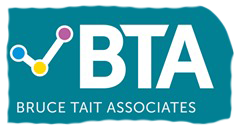30 November 2020 / Garry Burns
Home
/ News & Views
/ Why you should call in the experts
“The Covid-19 crisis has put a financial squeeze on us. We will have to perform out of our skins across all areas just to survive. I’m not sure I can afford to use BTA to help me recruit the people we need to help us!”
The impact of Covid-19 on the charity sector is undeniable. Many charities have lost valuable staff and have faced cutting their services in the face of huge economic pressure.
Estimations are that UK-wide the sector has lost £4.5 billion in income as an immediate consequence of the pandemic. Some charities have closed and others face a fight to survive with a struggle to adapt to decreased funding. All of this while many are facing increased demand for their services from vulnerable people and communities in need of unparalleled levels of support.
The way that charities have responded throughout the pandemic has been both admirable and inspirational. The hard work and commitment of charities to continue delivering support to vulnerable services users have been vital. The charity leaders and staff that I have spoken with across the summer and into autumn have shifted their approach and developed a far more short-term focus, which allows them to battle the current circumstances in support of their users. While a shift to short-term focus has been critical to continuing their support, it has caused attention to divert from the long-term. Strategic plans conceived and launched “pre-Covid” were somewhat shelved as charities, understandably, battled the here and now.
Humans, by our nature, are adaptable and we have pivoted personally and professionally since March 2020 to react to the restrictions and consequences of the pandemic. Wearing my mask in the gym and at the shops feels normal now, as does the almost constant need to rub hand sanitiser on my hands. Charities have also adapted and focus has slowly started returning to long-term strategic plans.
Staff are central to so many long-term plans and your charity must have the best people in posts to help achieve success. All across your organisation, having the very best people in posts will be critical. Now is the time when everyone is accountable and there is no room for passengers. For example, in the fight for survival or the drive towards success, the difference between a good fundraiser and a great fundraiser could be tens of thousands of pounds of donor income. Consider the impact that having great people will make to your charity.
If you don’t have the best people in place and you need to attract new talent to your charity, how will you do it alongside maintaining a focus on navigating through this crisis to sustain your future and delivering services to vulnerable users?
I have spoken with and recruited for so many charities that have initially gone out on their own to try and find the best talent for their teams but failed to do so. The common approach is advertising on job boards and social media, and these can be a great avenue but should be seen as an option rather than the only option. Job Boards and Social Media do not provide the extended reach required to access to the best talent. You will attract a high-volume of active jobseekers, a number inflated because of the unfortunate impact of the pandemic on the economy, desperate to work. This desperation alongside the high-volume does not guarantee success. Can you be confident that applicants are truly passionate and dedicated to your cause, organisation and the role for the long-term when they are applying simply to get work? How much time will it take to review and respond to unsuitable applicants before finding the few suitable people amongst them? When you have to dedicate so much time to helping your charity survive and support your users, how much time can you dedicate to engaging with applicants? An applicant becomes a stakeholder in the organisation as soon as they apply and must be treated accordingly; spending a 10-minutes reviewing and providing a courteous reply to 50 individual applicants is more than 8-hours of your time – a full working day and 20% of your week. Who has that time to invest in these current times?
The adverts and job descriptions you use speak volumes about your organisation from culture to the working environment. Getting it wrong can put your brand and reputation at risk and adversely affect not only attracting suitable candidates but future donors and partners. Producing creative and engaging copy for recruitment campaigns includes advertising, marketing and candidate information material such as job descriptions, and requires a specialist skill. It’s imperative your organisation is represented truly and accurately through the style, tone and messaging included. Failing to engage the most appropriate candidates at this stage has a huge knock-on effect and will result in a poor shortlist with unsuitable candidates and an interview day wasted.
Failure in hiring staff is costly in many areas: time, finances and energy. A campaign that yields no suitable candidates sees you lose valuable time better spent delivering in your area of expertise, money wasted on advertising and recruitment tasks that don’t return income, and your effort across the campaign is not returned. A worse scenario is hiring the wrong candidate. All the time, money and energy spent on the recruitment campaign followed by onboarding, training, development, support, guidance and ultimately letting them go to start again has a massive negative impact across the whole organisation.
Charities call in the experts and work with BTA as we protect against failure and mitigate the risk of a poor campaign through our robust and proven recruitment process. We are the experts that charities across Scotland call upon when they need the best staff and to help in their efforts to succeed or survive their current situation.
There is a centuries-old prover “For the want of a nail” which reminds us that seemingly innocuous acts or omissions can have significant unforeseen consequences. When recruiting, a small omission or miscommunication in a job description or advert can lead to the best candidates not applying and you facing a shortlist of lesser options. BTA work hard across our 140-point recruitment plan to ensure that our charity partners and their recruitment campaigns are never left “wanting for a nail”.
Recruitment is an investment, not a cost. Hiring the very best talent will enhance your charity, allowing you to survive any challenges from the pandemic and to succeed in your charitable aims. Going it alone is fraught with risk and these risks enhance the danger of a failed campaign or a less-than-great hire and this is the real costs you could face.
Can you afford not to call in the experts and use BTA to find the best talent for your charity?


